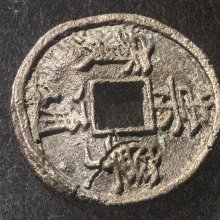Gavo, Gāvo: 2 definitions
Introduction:
Gavo means something in Buddhism, Pali. If you want to know the exact meaning, history, etymology or English translation of this term then check out the descriptions on this page. Add your comment or reference to a book if you want to contribute to this summary article.
Images (photo gallery)
Languages of India and abroad
Pali-English dictionary
Source: BuddhaSasana: Concise Pali-English Dictionarygāvo : (m. (nom. plu.)) cattle.
Source: Sutta: The Pali Text Society's Pali-English DictionaryGāvo, see go. (Page 250)

Pali is the language of the Tipiṭaka, which is the sacred canon of Theravāda Buddhism and contains much of the Buddha’s speech. Closeley related to Sanskrit, both languages are used interchangeably between religions.
See also (Relevant definitions)
Starts with: Gavoala, Gavoddha, Gavodgha, Gavodva, Gavopasha, Gavoy.
Ends with: Kadvo sargavo, Omgavo, Omungavo, Saragavo, Sargavo, Surgavo.
Full-text (+24): Gavodgha, Paryagu, Agaviya, Ashitamgavina, Duddha, Dronadugdha, Kumbhaduhana, Tishthadgu, Dronagha, Dronakshira, Dronadugha, Shapha, Pushpin, Kikata, Vatsatara, Tanti, Sakini, Niyyadeti, Shaurya, Madhu.
Relevant text
Search found 30 books and stories containing Gavo, Gāvo; (plurals include: Gavos, Gāvos). You can also click to the full overview containing English textual excerpts. Below are direct links for the most relevant articles:
Garga Samhita (English) (by Danavir Goswami)
Verse 6.5.4 < [Chapter 5 - The Kidnapping of Śrī Rukmiṇī]
Verses 5.15.5-6 < [Chapter 15 - Seeing Sri Radha]
Verse 2.8.9 < [Chapter 8 - Description of Seeing Lord Kṛṣṇa]
Bihar and Eastern Uttar Pradesh (early history) (by Prakash Narayan)
Buddhism and Cattle Sacrifice < [Chapter 2 - Economic and Urban Processes]
Vedic Sacrifices and Cattle Wealth < [Chapter 2 - Economic and Urban Processes]
Gemstones of the Good Dhamma (by Ven. S. Dhammika)
Rig Veda (translation and commentary) (by H. H. Wilson)
Brihad Bhagavatamrita (commentary) (by Śrī Śrīmad Bhaktivedānta Nārāyana Gosvāmī Mahārāja)
Verse 1.6.111 < [Chapter 6 - Priyatama (the most beloved devotees)]
Verse 1.7.128 < [Chapter 7 - Pūrṇa (pinnacle of excellent devotees)]
